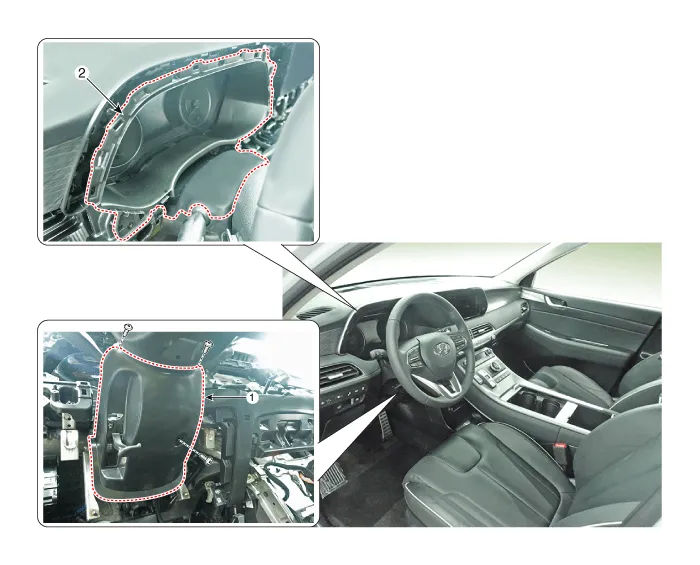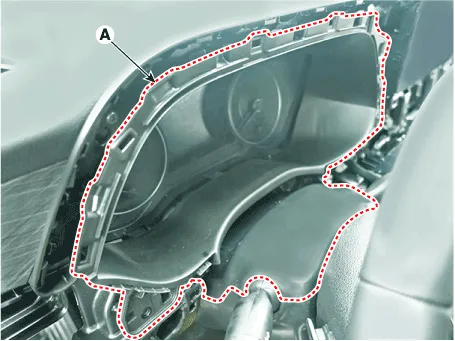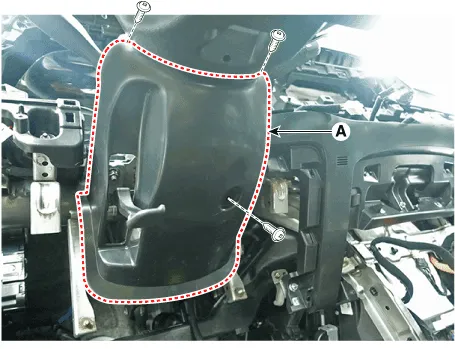Hyundai Palisade (LX2): Crash Pad / Steering Column Shroud Panel
Components and components location

1. Steering column shroud lower
panel
|
2. Steering column shroud upper
panel
|
Repair procedures
[Steering column shroud upper panel]
| • |
When removing with a flat-tip screwdriver or remover, wrap protective
tape around the tools to prevent damage to components.
|
| • |
Put on gloves to prevent hand injuries.
|
|
| • |
Use a plastic panel removal tool to remove interior trim pieces
without marring the surface.
|
| • |
Take care not to bend or scratch the trim and panels.
|
|
| 1. |
Remove the front center fascia panel.
(Refer to Crash Pad - "Center fascia panel")
|
| 2. |
Remove the crash pad lower panel.
(Refer to Crash Pad - "Crash pad lower panel")
|
| 3. |
Loosen the mounting screws and remove the side air vent duct [LH] (A).

|
| 4. |
Loosen the mounting screws and remove the steering column shroud upper
panel (A).

|
| 5. |
To install, reverse removal procedure.
| •
|
Replace any damaged clips (or pin-type retainers).
|
|
|
[Steering column shroud lower panel]
| • |
When removing with a flat-tip screwdriver or remover, wrap protective
tape around the tools to prevent damage to components.
|
| • |
Put on gloves to prevent hand injuries.
|
|
| • |
Use a plastic panel removal tool to remove interior trim pieces
without marring the surface.
|
| • |
Take care not to bend or scratch the trim and panels.
|
|
| 1. |
Remove the crash pad lower panel.
(Refer to Crash Pad - "Crash pad lower panel")
|
| 2. |
Loosen the mounting screws by turning the steering wheel to the left
and right, and remove the steering column shroud lower panel (A).

|
| 3. |
To install, reverse removal procedure.
| •
|
Replace any damaged clips (or pin-type retainers).
|
|
|
Components and components location
Component Location
1. Crash pad lower panel
Repair procedures
Replacement
•
When removing with a flat-tip screwdriver or remover, wrap protective
tape around the tools to prevent damage to components.
Components and components location
Component Location
[LH]
1. Crash pad side cover [LH]
[RH]
1.
Other information:
Repair procedures
Replacement
1.
Remove the rear heater & A/C unit.
(Refer to Rear Heater - "Rear Heater Unit")
2.
Loosen the mounting screws and remove the rear heater core cover (A).
Variant Coding
When you need variant coding:
–
Replace Front View Camera with a new one
※ EOL Variant Coding and calibration required for new replacement
Front View Camera Variant Coding










